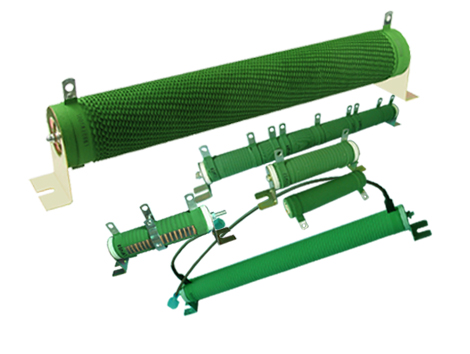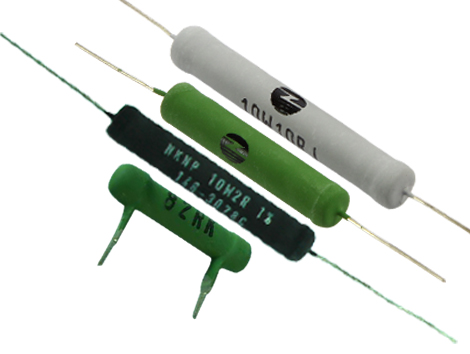What effect does the electrical load of the resistor have on the resistor!
The conductive film of the resistor is usually obtained by vapor deposition, and has an amorphous structure to some extent. According to thermodynamics, amorphous structures tend to crystallize. Under working or environmental conditions, the amorphous structure in the conductive film tends to crystallize at a certain speed, that is, the internal structure of the conductive material tends to densify, which can often lead to the decline of the resistance value. The crystallization rate increases with the increase of temperature.

High temperature aging of electrical load: in any case, electrical load will accelerate the aging process of the resistor, and the effect of electrical load on accelerating the aging of the resistor is more significant than that of increasing the temperature, because the temperature rise of the contact part of the resistor body and the lead cap exceeds the average temperature rise of the resistor body. Usually, life is shortened by half for every 10℃ rise in temperature. If overloading causes the resistor temperature to rise by 50℃ above the rated load, the resistor's life will be only 1/32 of its normal life. An accelerated life test of less than four months can assess the resistor's working stability over a period of 10 years.

DC load electrolysis: under DC load, electrolysis leads to the aging of resistor. Electrolysis occurs in the grooving resistor groove, and the alkali metal ions contained in the resistor matrix are displaced in the electric field between the slots, generating ionic current. The electrolysis process is more intense in the presence of moisture.

If the resistance film is carbon film or metal film, it is mainly electrolytic oxidation; If the resistance film is metal oxide film, it is mainly electrolytic reduction. For high resistance film resistors, the result of electrolysis can increase the resistance, and film failure may occur along one side of the spiral of the slot. The resistance to oxidation or reduction of the resistor substrate material and the film, as well as the moisture resistance of the protective layer, can be fully examined by the DC load test under the hot and humid environment.
Recommended information
- 正阳兴生产的负载箱应用的领域和特点!
- ZENITHSUN Production Site-1
- ZENITHSUN Production Site-2
- ZENITHSUN Production Site-3
- ZENITHSUN Production Site-4
- Load Bank Assembly Site -1
- Load Bank Assembly Site -2
- ZENITHSUN Load Banks Assembly Site-3
- Load Banks Batch Assembly Site-4
- Load Bank Assembly Site -5




